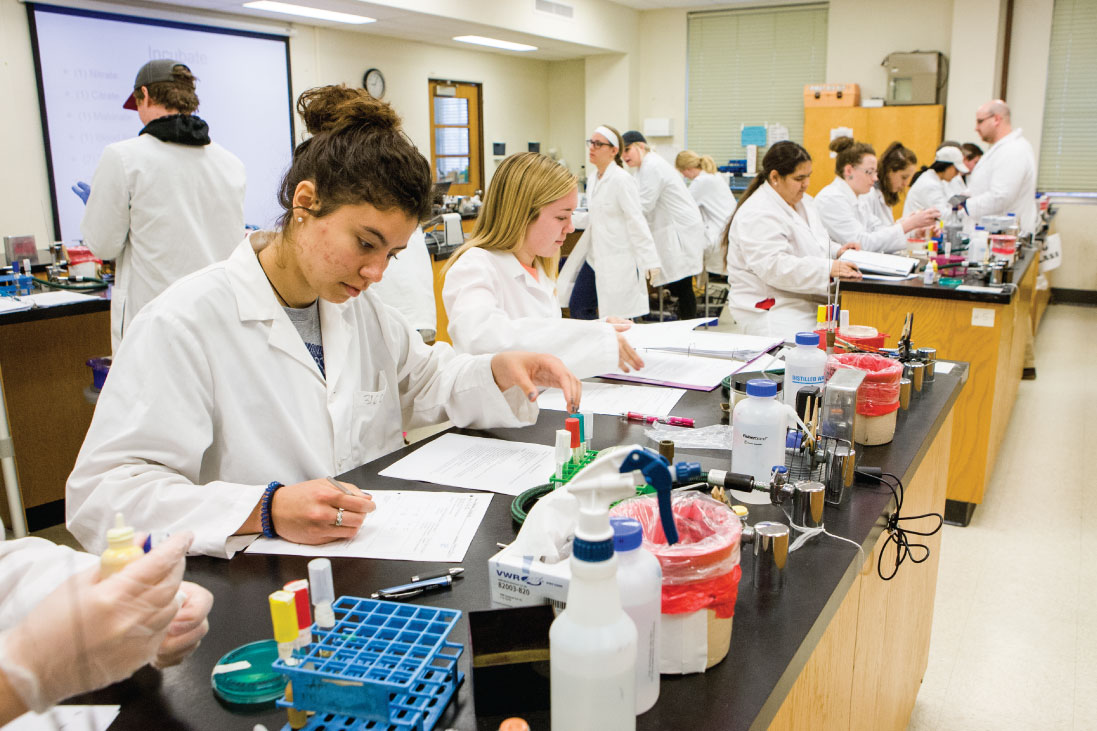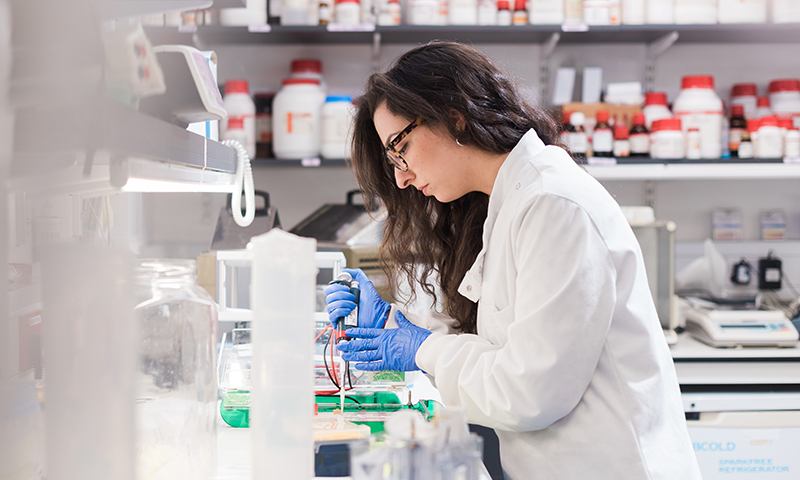If you want to study biology, then you need to be prepared financially because it’s going to cost a lot of money. The first thing that most students do when they decide on a career in science is to look into the amount that it costs to pursue a doctorate in any given field.
The average annual salary for a biologist is around $80,000 a year. However, if you want to work with a specific specialty, such as genetics or biochemistry, then the figure can be higher. If you want to teach, then the starting salary will vary depending on where you live and how long you’ve been teaching.
There are many ways in which you can make ends meet while pursuing your Ph.D., including getting a part-time job or volunteering somewhere else. You may also consider earning some extra cash by selling your old textbooks or CDs online.
What Is PH.D. in Biology?
A Ph.D. degree is an academic qualification awarded by universities worldwide to students who have completed their studies. The title of “Doctor of Philosophy” comes from the Latin word ‘philosophia’, meaning ‘love of wisdom’.
In the United States, the first university that granted a doctorate was Harvard University in 1640. However, the practice didn’t become widespread until the mid-19th century. Today, there are more than 1,300 institutions around the world offering doctoral degrees in science and engineering.
You can earn this type of degree through a variety of different programs. You may choose to study one particular area of research, such as physics or chemistry. Or you could specialize in a specific field, like biochemistry or microbiology.
There are two main routes to earning your Ph.D.:
1. A traditional route is the standard four-year course of study, followed by three years of postgraduate work. This is the most common way to complete your degree.
2. An alternative option is to combine a master’s degree with a doctorate. In these cases, you typically spend five to seven years studying at a university. After completing this program, you must pass an oral exam before being allowed to call yourself a Doctor of Philosophy.
What Benefits of Doing a PH.D. in Biology?
What does Ph.D. stand for? Well, you could say that it stands for “Doctor of Philosophy.” This is an academic degree that you can earn after completing four years of study. You will be expected to write several long papers, so you need to make sure that you have enough time to complete your studies.
You should also know that you won’t get paid very much when you finish this type of program. However, you can expect to receive a stipend for living expenses. If you’re interested in earning a Ph.D. in Biology, then you might want to consider the following options:
Biology is a popular field of study. Many people choose to go into this area because they enjoy learning new things and they like working with their hands.
If you’re looking for a career that combines science, technology, engineering, and math (STEM), then you may want to consider studying biology.
You’ll find plenty of opportunities for employment in this field. There are many different types of jobs, including research assistantships, teaching positions, laboratory technicians, and more.
Is It a Good Career Option for an Individual?
If you have been thinking of pursuing a Ph.D., then this article can help you make the right decision. This is a guide that explains how to choose the best program for your needs.
There are many different options available when it comes to earning a Ph.D. You need to be aware of the differences between these programs so that you know what type of degree will suit your interests and goals. For example, you might want to consider an online program.
Online degrees allow you to study from home while working full-time. This means that you don’t have to worry about commuting and finding a place to live. However, you do still need to pay for tuition.
In addition, you can also earn your Ph.D. through a traditional university. If you are interested in studying at a local college, then this is the ideal choice.
When it comes to choosing the right school, you should look for one that offers the classes that you enjoy. This way, you will find yourself more motivated to complete all of the coursework.
You should also think about what kind of job prospects there are after completing a doctorate. Some people decide to continue their studies because they are looking to become professors. Others prefer to work in industry and research new ways of doing things.
How to Get A Ph.d. in Biology
Biology is one of the most popular majors among students. If you want to pursue this career, then you should consider obtaining a Ph.D. This article explains how to obtain a Ph.D. in biology.
A Ph.D. in biology requires that you complete at least three years of coursework. You will need to take courses in the following subjects: genetics, cell structure, biochemistry, molecular biology, physiology, and anatomy.
After you have completed your studies, you will be required to write a thesis. The length of time it takes for you to complete the dissertation depends on the type of research that you are doing.
If you decide to go into teaching, then you can earn a master’s degree in education after completing your bachelor’s degree.
You should also note that there is no specific requirement for getting a Ph.D. in biology. It just means that you’ve earned enough credits and have taken enough classes to make sure that you know the subject well.
Importance of Doing a PH.D. in Biology
A Ph.D. in Biology is an advanced degree that requires years of study, research, and learning. A Ph.D. in Biology can be very beneficial to you, but you must know how important it is. You will need to complete many hours of work, take several tests, and write a thesis.
If you want to get a Ph.D., you should first decide whether you are interested in studying one particular topic or multiple topics. If you are looking to specialize in just one field, you might consider getting a Master’s Degree instead. This way, you can focus on that area of study.
You also have to make sure that you choose the right school. For example, you may not want to go to a university where no faculty member specializes in your chosen subject. The best schools are the ones that offer the most courses and resources related to your career.
There are also other things you need to keep in mind. For instance, some universities charge higher tuition fees than others. Also, you will need to find out what scholarships are available at each institution.

Career Options After Doing PH.D. in Biology?
After completing a Ph.D., you will have many career opportunities available to you. You can work as an assistant professor, a postdoctoral researcher, or a research scientist, or you can become a physician.
To get into the medical field, you need to complete your residency training. This is usually four years long. After that, you can apply for a fellowship program.
You will also want to make sure that you take time off from school before you start working full-time. If you don’t, you may be forced to quit.
If you decide to pursue a career in science, you should keep in mind that there are different levels of education that you can obtain. For example, you can earn a bachelor’s degree, master’s degree, or doctorate (Ph.D.). Your choice depends on what you wish to do with your life.
When you graduate, it is important to continue studying so that you can stay up to date on new developments in the field.
What Are the Advantages and Disadvantages of A Ph.d.?
A doctorate is a type of advanced academic qualification. However, the process of earning one isn’t always straightforward. If you’re wondering whether or not you should get your Ph.D., then keep reading for more information. This article will explain why you might want to earn this degree.
A doctorate can indeed be extremely valuable. For example, doctors with a Ph.D. usually have access to better resources, such as medical equipment and drugs. But there are also some drawbacks to getting a Ph.D.
First of all, you need to remember that it takes years of hard work to complete a doctoral program. It is possible to spend several years studying at university before finally receiving your degree.
Another thing to consider is that you won’t necessarily make any money while you’re working towards your doctorate. You may end up having to take out student loans or even start working part-time to pay for the costs of your studies.
Finally, you’ll probably find yourself spending most of your time studying. It will almost certainly be impossible to pursue other interests, hobbies, or careers during this period. So, if you don’t enjoy being stuck in a library every day, then it would be best not to choose this path.
